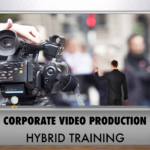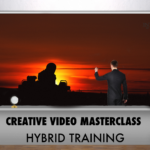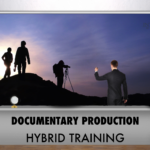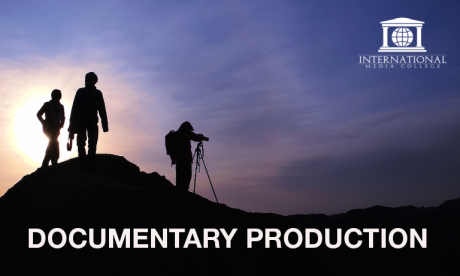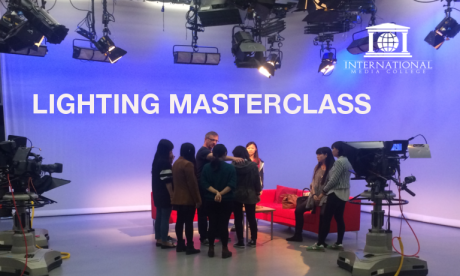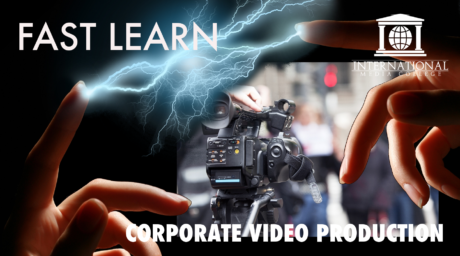Instructors
Hybrid – MOJO smartphone filming
Our unique hybrid training programmes offer delegates the best of all worlds. The workshops combine the latest online, interactive learning techniques with face to face training and virtual classroom teaching. This allows students to be taught in the most effective and time efficient manner.
The mobile journalism hybrid learning workshop begins with a series of online courses delivered by Dean Arnett and David Hayward.
Students are introduced to the key concepts and grammar of mobile journalism. They will learn the basics of filming, editing and storytelling, how to get the best out of sound and lighting and how to interview contributors.
Stage one – Online Learning
- 1) An introduction to mobile journalism (to be shot)
- 2) Introduction to iMovie and Filmic Pro (to be shot)
- 3) Five shot sequence
- 4) Interviewing how to frame an interview
- 5) Introduction to lighting
- 6) Introduction to sound
- 7) Facebook Live (to be shot)
- 8) Re-versioning online video
Stage two – Pre-Workshop exercise
Delegates will be set a filming task to complete before the face to face workshop. The exercise gives participants the practical experience of filming before they attend the face-to-face sessions.
This is a vital part of the success of hybrid learning. It ensures the delegates start from a level of understanding and the face-to-face training can concentrate on more advanced techniques.
Stage three – Face-to-Face workshop
Mobile-journalism (MoJo) 2-Day Video Production Course
This two-day course has been specifically designed to give delegates the skills to produce quality; engaging and compelling mobile video both live and pre-recorded.
Delegates will learn the very latest filming, editing and the digital storytelling techniques. They will create their own videos and be taught how to make them suitable for all platforms.
They will learn the power of mobile journalism and how it can be used in newsgathering, filming, editing and live broadcasting.
We will look at different styles of shooting, comparing treatment types and discussing the advantages and disadvantages, of directed film making, against more ‘organic’, ‘run-and-gun’ styl film making.
Delegates will also look in depth at story structure, how the ultimate narrative of the film is achieved through editing techniques and how it should inform how we shoot.
We will look at what qualities make a film compulsive and shareable, and how to incorporate those techniques into shooting and editing.
The course will include:
|
Inspiration |
· Great examples of compelling vide news stories playing to the strengths of medium |
|
Storytelling |
· The different types of web-based video |
|
Planning |
· Discussion of how story choice may be different for video and print |
|
Filming |
· Filming |
|
Editing |
· Which is the best edit |
|
Platform |
· The 12inch, 12foot debate, its implications and consequences |
|
Running a working production outfit |
· Music use |
Kit/Equipment:
The course can be taught using any mobile device – but preferably the iPhone or Android. Delegates will need to have Filmic Pro and iMovie already installed on their devices.
We will be giving advice on the best additional equipment, including sound, grips. Tripods, memory and lighting.
Stage four – Continued support and Feedback
The success of hybrid training is the continued support and feedback offered by the trainers: Dean Arnett and David Hayward. They will give detailed feedback, support and analysis on up to four separate films from each of the delegates on the course. We are big believers in a continued training relationship. The delegates will learn far more by working with the expert trainers and developing their skills over a period of months.
Stage five – Refresher virtual classroom modules
In order for the delegates to take the next step and to progress from a beginner to an intermediate and expert filmmaking they need to continue learning. Our hybrid model supports this with a programme of expert masterclasses delivered online in a virtual classroom environment.
The masterclasses are delivered live every month from our studios in the UK. You can either choose to watch them live and have the opportunity to interact with the trainer, or watch a recording of the session on catch-up.
Masterclasses on offer:
- 1) Expert filmmaking – advanced use of Filmic Pro
- 2) Expert editing – making the most of iMovie
- 3) Mobile apps masterclass – the latest techniques in mobile filmmaking
- 4) Social Video masterclass – how to make your video go viral on social media
- 5) Reporting live masterclass – how to broadcast like a professional on your mobile
- 6) Video storytelling masterclass – how to make your film have impact and power
Strengths and Advantages
All IMC training courses are constantly updated with the very latest information, details, and technology refences, so you can be sure that the training being delivered is always up to date.
Generally we can arrange training that suits you rather than the trainers and you have full accounatbility both that the full agreed syllabus has been delivered, but also that all students have completed the full syllabus. This can be achieved through the built in interactive test and review modules built into each course that both track progress and confirm a student understands that module before moving on.
Costs
Hybrid courses are designed to deliver the ost effeicent training, in terms of time and cost, to the biggest group of people. Therefore each session, although modular, is bespoke and tailored to your requirements. Please get in touch with your class size, ideal timings and particular requirements and we can work out a group cost that works best for you – and that will be considerably cheaper than conventional training.
Course Curriculum
Course Reviews
No Reviews found for this course.

